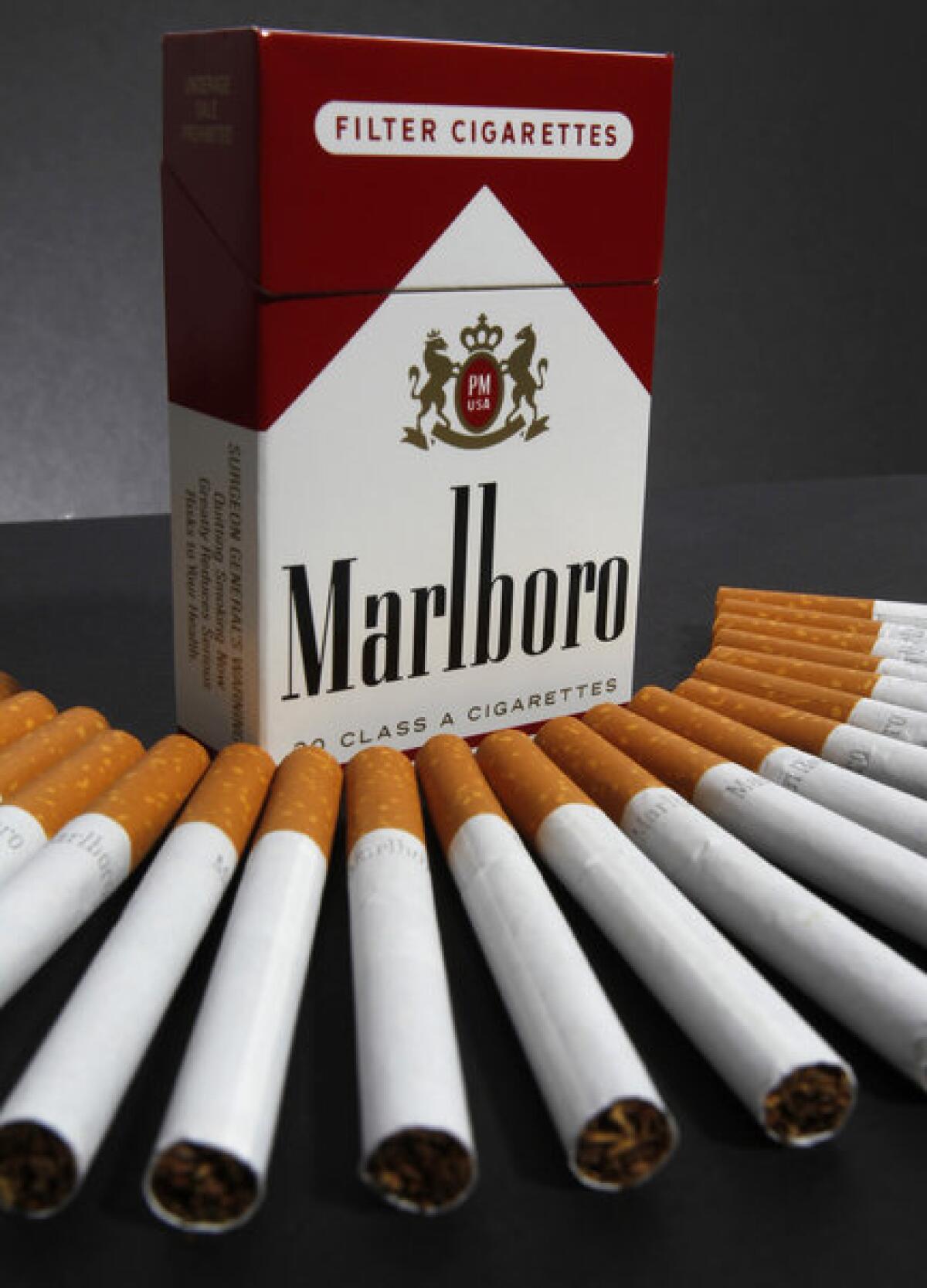A license for smoking tobacco? Two experts debate

- Share via
“Nanny” alert!
Two essays in a journal this week explore a radical idea: People who smoke tobacco should have to buy licenses.
OK, so something like that may be a nonstarter in the U.S. today, but it’s enough within the realm of possibility elsewhere to engage two public health experts in open debate.
As one of the writers notes, “endgame” discussions are already taking place among smoking cessation circles and New Zealand, for one, has declared a goal of becoming smoke-free by 2025. (Gandalf and Bilbo Baggins, take note!)
Here’s what each side had to say (and you can read their arguments in full at the website of the journal, PLOS Medicine).
Arguing for a smoker’s license is Simon Chapman, director of Action on Smoking and Health in Australia and former editor of the journal Tobacco Control. Here’s some of what he proposes:
-- Anyone 18 or over who wants to smoke will have to pony up money for a one-year renewable swipecard license, the fees for which would depend on how many cigarettes they want to smoke each day. There would be a maximum limit.
-- When they buy cigarettes, they’ll have to present their swipecard and if they’ve gone over their limit the vendor cannot sell them the cigarettes.
-- If they later give up smoking, they’ll get all the license money refunded to them — plus interest. But that would be permanent. They couldn’t get a refund then just go out and reapply for a license.
-- Tourists could buy temporary licenses the way they rent local cellphones.
-- Anyone turning 18 who wants to purchase a license would have to pass a smoking-knowledge test to ensure they know the facts about the habit they are about to embark upon.
Sound radical? The ultimate in heavy-handed affronts to personal liberty? Simon writes that governments have already made huge strides in denormalizing smoking. (Who remembers smoking sections in airplanes, lighting up in the office and making Mom and Dad ashtrays in craft class at school? These things seem crazy to imagine today.) He compares a license for lighting up to a prescription for certain medications. We aren’t allowed to purchase helpful but also potentially risky drugs willy nilly over the counter. So why, he asks, are we allowed to buy something that has no upside at all as guiltlessly as we do candy or milk at a mom-and-pop store?
Simon also adds that surveys have suggested that many smokers want to quit and welcome the denormalizing of their habit. A license would “send a powerful, symbolic message to all smokers and potential smokers that tobacco was no ordinary commodity ... and thereby invite reflection among smokers on why this exceptional policy had been introduced.”
Arguing against a smoker’s license is Jeff Collin of the Global Public Health Unit at the University of Edinburgh in Scotland. Collin was part of a World Health Organization expert committee looking into the tobacco industry’s efforts to interfere with tobacco control policies.
“It is indeed a historical absurdity that so dangerous a product should be so readily available,” Collin writes. And he welcomes the focus on “endgame strategies” to address the problem of smoking. But he feels that any consideration of such measures has to pay attention to ethical issues and that this one is ethically iffy.
“In countries where digital ID cards are routinely carried or objections to authorities holding data are limited ... linking tobacco purchases to such cards may be largely unproblematic technically or politically,” he writes, citing Singapore as an example. Not so countries where ID cards and the collection of data by the government on personal habits are considered a bridge too far. In Britain, he notes, governments have tried repeatedly to introduce identity cards and so far have failed.
Collin adds that there are other ways to restrict the sale of cigarettes that don’t target consumers quite so starkly, making them feel like “registered addicts,” and disproportionately targeting the poor.
And, he says, while smoke-free workplaces have been viewed as liberal measures that protect the health of non-smokers, Simon’s license would be viewed as intrusive and give ammo to the tobacco industry’s charges that smoking restrictions amount to “health fascism.”






